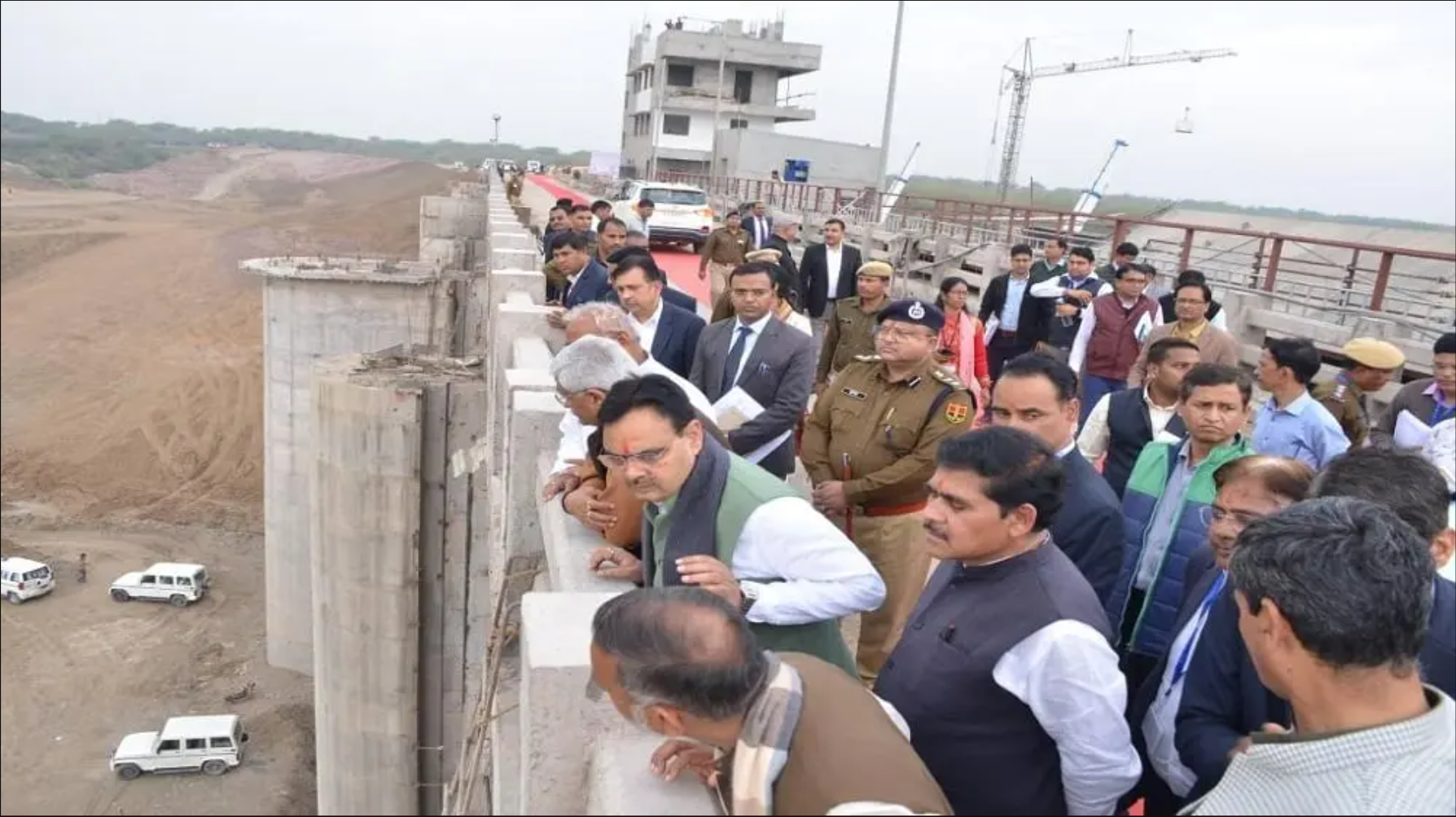Rajasthan: A major river-linking project that aims to provide water for drinking, irrigation and industrial purposes to 21 districts of eastern Rajasthan is expected to be completed by 2026. The project, known as the Modified Parbati-Kalisindh-Chambal-ERCP (PKC-ERCP) Link Project, will divert water from the Kalisindh river, a tributary of the Chambal river, to the Banas river, which flows through the water-scarce regions of the state.
The project is a part of the National Perspective Plan for interlinking of rivers, and involves the integration of the Parbati-Kalisindh-Chambal (PKC) link project with the Eastern Rajasthan Canal Project (ERCP). The PKC link project was conceived in 1980 to transfer surplus water from the Kalisindh and Parbati rivers to the Chambal river, while the ERCP was proposed in 2019 to utilise the water resources optimally in the Chambal basin by transferring water from the Kalisindh, Parvati, Mej and Chakan sub-basins to the deficit sub-basins of Banas, Gambhiri, Banganga and Parbati.
The modified PKC-ERCP project will have a total length of about 1,000 km, of which 595 km will be in Rajasthan and 405 km in Madhya Pradesh. It will have 12 dams, 10 barrages, 7 tunnels and 22 aqueducts. The project will have a total cost of Rs 40,000 crore, of which 90% will be borne by the central government and 10% by the state governments.
The project will benefit 13 districts of eastern Rajasthan, namely Ajmer, Bhilwara, Bundi, Chittorgarh, Dausa, Jaipur, Karauli, Kota, Sawai Madhopur, Tonk, Baran, Jhalawar and Rajsamand, and 8 districts of Madhya Pradesh, namely Mandsaur, Neemuch, Ratlam, Ujjain, Shajapur, Dewas, Agar Malwa and Rajgarh. The project will provide drinking water to about 1.5 crore people, irrigation water to about 2.8 lakh hectare area in each state, and industrial water to various sectors. The project will also generate hydroelectric power of about 103 MW.
The project is expected to boost the socio-economic development of the region, improve the groundwater recharge, enhance the water quality, and mitigate the flood and drought risks. The project will also have positive impacts on the environment, as it will reduce the soil erosion, increase the forest cover, and conserve the wildlife habitats.
The project is currently in the stage of preparing a detailed project report (DPR), which will be followed by a memorandum of agreement (MoA) among the Rajasthan, Madhya Pradesh and central governments, covering the aspects of water sharing, cost sharing, implementation, management and control. The project is likely to be completed by 2026, according to the Union Jal Shakti Minister Gajendra Singh Shekhawat, who visited the project site in Kota along with the Rajasthan Chief Minister Bhajanll Sharma on Sunday



